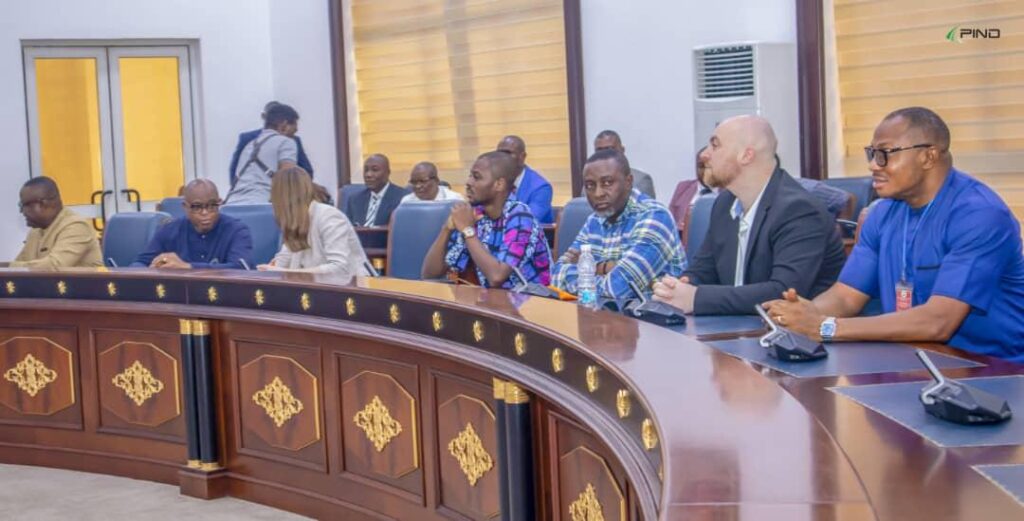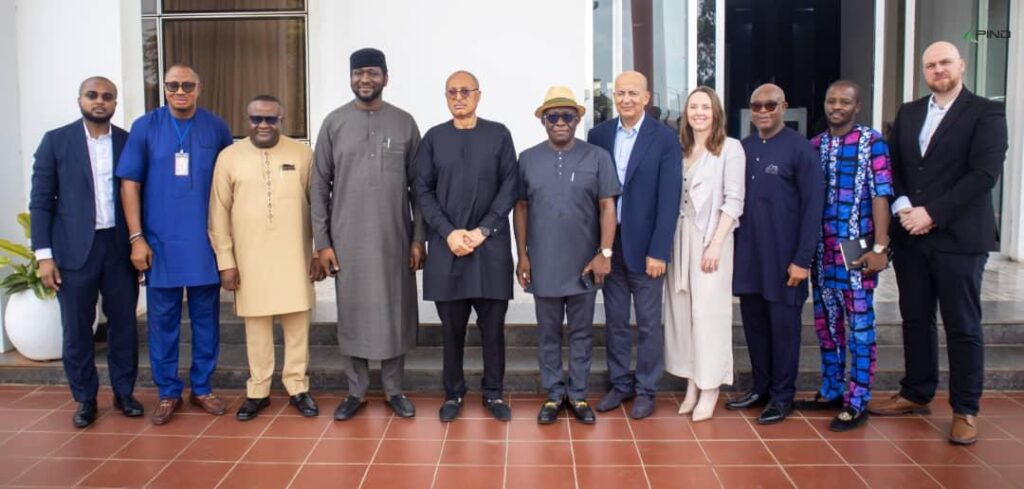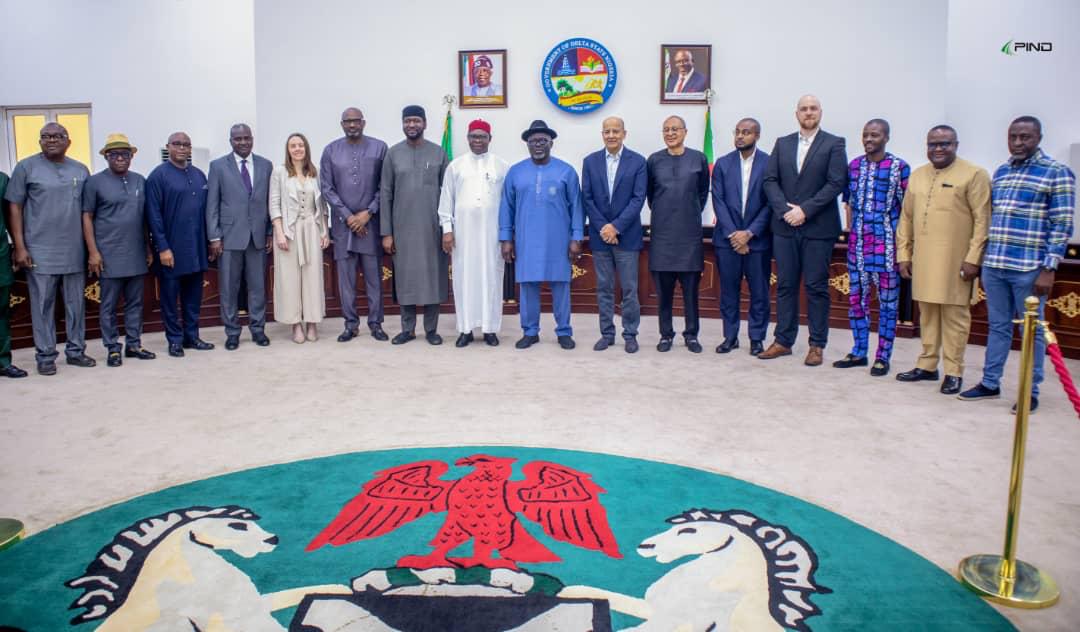London - February 27th 2024
- Serendib Capital, Eight Versa and PIND (Foundation for Partnership Initiatives in the Niger Delta) are set to collaborate with the Delta State government on a wide-scale mangrove restoration and conservation project in Nigeria’s Niger Delta region
- The project would be the second-largest mangrove restoration project in the world.
- According to the group’s estimations, the project has the potential to sequester and avoid just over 5 million tonnes of carbon emissions per year, and prevent the logging and removal of 250,000 hectares of forest.
- The project would be a blueprint for further mangrove restoration projects across different geographies
A conservation initiative for environmental conservation and carbon sequestration is underway in Nigeria’s Niger Delta region, led by Serendib Capital, in partnership with the Delta State Government.
According to Serendib’s estimations, this mangrove restoration project has the potential and aims to sequester up to 5,320,000 tonnes of carbon each year, while helping to prevent the deforestation of 250,000 hectares of forest and replantation of 20,000 hectares. This would make it the second-largest mangrove carbon sequestration project in the world.
Nigeria’s mangrove forests span an area of 10,500 km², making them the largest in Africa, and the third-largest globally.
These mangroves are crucial for a range of vital ecosystem services, including biodiversity support, flood prevention, coastal erosion protection and carbon sequestration.
Despite their importance, there has been a concerning degradation of these forests worldwide. From 1996 to 2016, the Niger Delta region alone witnessed a loss of approximately 40% of its mangrove forest which is equivalent to over 65 million tco2e.
Research highlights the Nigerian Mangrove forests as some of the most biodiverse on the planet, possessing a remarkable ability for carbon sequestration. Mangroves play a key role in coastline defense, protecting against sea-level rise, storm surges, and erosion. They also safeguard the ecosystem by functioning as natural pollution filters.
The carbon credits generated from the project would be used to bring tangible benefits to the regions they operate in and would be used as an economic vehicle to support the communities involved.
The conservation project would generate carbon credits, that would be used as an alternative income source for those local people who may otherwise make an income from illegal logging and deforestation.


Governor, Rt. Hon. (Elder) Sheriff F.O. Oborevwori, Executive Governor, Government of Delta State: “I am deeply committed to environmental conservation and sustainable development, I am thrilled to endorse the groundbreaking mangrove and seagrass conservation project. Not only does this initiative prioritize the protection of vital ecosystems, but it also pioneers creative solutions to address local demands for job creation, infrastructure development, education, and climate resilience building. By integrating these critical elements into the conservation efforts, we are not only safeguarding our natural heritage but also fostering socio-economic growth and enhancing community resilience. This program sets a remarkable precedent as a world-first endeavour, demonstrating how environmental stewardship can harmoniously coexist with human development aspirations. I commend all stakeholders involved for their visionary approach and unwavering commitment to shaping a more sustainable and prosperous future for generations to come.”
Christian Elemele, COO of Serendib Capital, emphasises the project’s broader significance: “Our decision Investing in a Bio Ethanol Plant in Thailand in 2022 was our first ESG investment but was not just driven by reviving a distressed Asset; it was about catalyzing local economic development, creating employment opportunities, and diversifying the local energy mix. This investment’s intent is to kickstart a wave of job creation and economic growth across multiple sectors from agriculture to manufacturing, transportation, and research, while also promoting responsible resource management, including its contribution to carbon reduction targets, improved air quality, and public health. Looking forward, we aim to replicate these type of investments across regions we intend to work in, bringing our expertise to bear in fostering sustainable development and driving positive change in communities.Our journey into the realm of Blue Carbon projects transcends conventional business practices. It’s a strategic opportunity to make a lasting and positive impact on both the environment and the societies we engage with. By developing projects that harmonize ecological preservation with economic prosperity, we’re setting the stage for a brighter, more sustainable future for all stakeholders involved.”
Dr Effiong Essien, Programs Director, Foundation for Partnership Initiatives in the Niger Delta, PIND: “This unique collaboration of PIND with global players to restore and conserve mangrove in the Niger Delta commencing with Delta State positions us at the centre of the second largest mangrove carbon sequestration project in the world with profound environmental and livelihood impacts. With the magnitude of work to sequester over 5m tonnes of carbon each year, prevent deforestation of 250,000 hectares and replant 20,000 hectares, PIND with over 14 years of supra-facilitating experience in development is poised and ready to deliver this with the state actors and other partners. Our performance scorecard in Niger Delta is unique and speaks for itself – Over 1million farmers and business benefited from our poverty reduction programs leading to income and productivity increase of $176m; helped to facilitate the creation of 77,000 new jobs across various sectors; provide access to clean energy (electricity) to 40 communities and 3,500 businesses and households; trained over 11,000 peace actors and tackled 1040 conflicts and leveraged over $150m additional investments by the state and other partners”
Sustainability consultancy Eight Versa will be advising Serendib on the environmental impact and implications of the project. Chris Hocknell, founder of Eight Versa, has said: “Projects like this, when run correctly, can provide the type of financial vehicle for the protection of the eco-systems that we rely on most. This project will not only serve as a buffer for climate change, but will be a test case for how we can ascribe economic value to environmental protection.”
For further information about the project and its impacts, please contact
team@darkgreenpr.com





